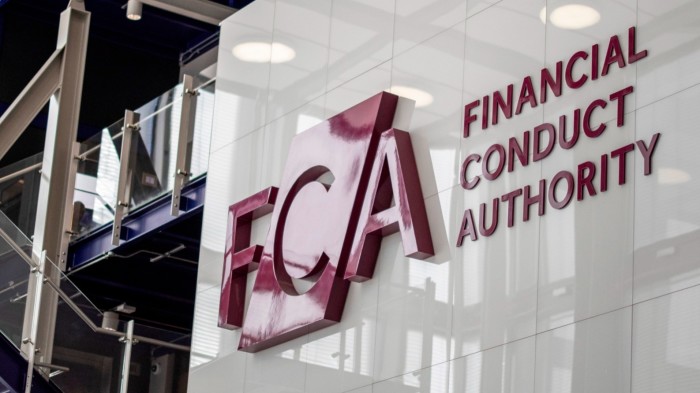Unlock the Editor’s Digest for free
Roula Khalaf, Editor of the FT, selects her favourite stories in this weekly newsletter.
The Financial Conduct Authority is “incompetent at best, dishonest at worst”, according to a scathing report by MPs and peers that calls for a major overhaul of the watchdog.
An almost three-year examination of the FCA, which collected evidence from 175 fraud victims, whistleblowers and former employees of the watchdog, found it was suffering from “very significant shortcomings”.
Current or former employees said “dishonesty and deceit” were “commonplace”, while any whistleblowers were “criticised, bullied and sidelined”, the All-Party Parliamentary Group on Investment Fraud and Fairer Financial Services will say on Tuesday.
The group, formed of 30 MPs and 14 members of the House of Lords, collected numerous “tragic tales of regulatory failure causing enormous financial and emotional distress”.
The findings will add to mounting criticism of the UK’s main financial regulator, which has been found wanting by several public inquiries and is under fire from the government for curtailing risk-taking and restraining economic growth.
Several current and former FCA employees told the parliamentary group that the regulator had a “defective culture” in which “errors and inaction are too common”, there was a lack of accountability and anyone challenging the official line is “bullied and discriminated against, or even managed out”.
One former FCA employee said it had “the worst staff culture I have ever experienced in nearly 40 years”, while another said “transparency was much talked about but seldom practised in things that mattered”, adding that “dishonesty and deceit were commonplace”.
The parliamentary group also found examples of “alarming” treatment of whistleblowers by the FCA. People who have blown the whistle to the watchdog described it as “an organisation that fails properly to investigate and act on intelligence provided, and that fails to protect — and in some cases, actively harms — those who provide such information”, it said.
A current FCA employee said they were “criticised, bullied and sidelined” after they “tried to raise serious and challenging questions” over conflicts of interest or the treatment of certain firms. “I have found that in order to operate it is best not to question,” they added.
Proposing a series of reforms — some of which would require legislation — the MPs and peers said they suspected the FCA would resist change. If this happened, the parliamentary group suggested an Australia-style Royal Commission to redistribute some of the watchdog’s responsibilities to other institutions.
“The picture painted is not pretty,” the report, which runs to more than 300 pages, said. “The FCA is seen as incompetent at best, dishonest at worst. Its actions are slow and inadequate, its leaders opaque and unaccountable.”
Reform proposals include setting up a supervisory council to review the effectiveness of the FCA, changing how it is funded, stripping it of immunity from civil liability to consumers, and restricting moves between the regulator and the private sector. It said reform of the regulator could be overseen by the National Audit Office.
The FCA has been criticised by several independent reviews set up to investigate recent financial scandals, including the collapse of minibond issuer London Capital & Finance, the failure of Connaught Income Fund and the mis-selling of advice to British Steel pensioners.
In response, the regulator launched a £320mn “transformation programme” under Nikhil Rathi, who joined as chief executive from the London Stock Exchange in 2020. He has shaken up its structure, invested heavily in technology and scrapped staff bonuses.
“We sympathise with those who have lost out as a result of wrongdoing in financial services, however we strongly reject the characterisation of the organisation,” said the FCA, which has yet to see the full report. “We have learned from historic issues and transformed as an organisation so we can deliver for consumers, the market and the wider economy.”
A recent FCA staff survey indicated morale was improving after its trust index score rose 3 points to 64 per cent this year, having climbed from a low of 48 per cent in 2022. A separate poll found three-quarters of regulated firms had a high level of satisfaction with the regulator.
This story has been amended to clarify that the report is by the All-Party Parliamentary Group on Investment Fraud and Fairer Financial Services.
Read the full article here

